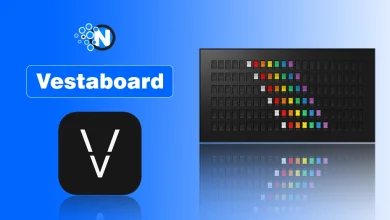
Working on a laggy laptop and having a frustrating experience even after switching numerous? That’s all because you do not know about different technical aspects, especially the DDR4 vs DDR5 difference. The purpose of creating this blog post is to educate you regarding these two important versions of temporary memory.
I also have suffered this issue for so long and the frustration it has created is really something unexplainable. While talking to my friend who is a specialist in optimizing laptops and PCs speed, I recognized the cause of my laptop getting slowed. This was the point when I understood the difference between DDR4 and DDR5 RAM.
What is RAM?
RAM stands for Random Access Memory and it is one of the most crucial components of computers and laptops. It plays a key role in the speed, efficiency, and performance of your device.
Over the years, there have been significant improvements in this key structure. The evolution of DDR4 and DDR5 is the proof. These two generations of RAM have delivered exceptional outcomes.
What is DDR4 RAM?
DDR4, short for Double Data Rate 4, was introduced to the world in 2014. It is the fourth generation of the DDR SDRAM and has received fame because of its higher speed. The data transfer speed ranges from 2133 MT/s to 3200 MT/s. Thus, you can enjoy better performance of your laptop using this RAM.

The top products I have seen with DDR4 RAM are:
- ASUS 2-in-1 Q535 Laptop: 16 GB DDR4 RAM
- ASUS ROG Fx503 Laptop: 4 GB DDR4 RAM
- Dell Vostro 15 3583 Laptop: 16 GB DDR4 RAM
- Clevo NH70 Laptop: 8 GB DDR4 RAM
- Acer Aspire Nitro 7 Laptop: 8 GB DDR4 RAM
What is DDR5 RAM?
Appearing in the market for the very first time in 2020, DDR5 has taken the world by storm not only because of its high data transfer speed but also enhanced module capacities. Besides, the sub-1.1V operation guarantees power efficient performance. Owing to these attributes, you can enjoy seamless multitasking as well as gaming with the help of this RAM.

DDR4 vs DDR5 – Key Differences
| Feature | DDR4 | DDR5 |
|---|---|---|
| Data Transfer Rate | 2133 MT/s – 3200 MT/s | 4800 MT/s – 6400 MT/s |
| Module Capacities | Up to 32GB | 16GB – 128GB |
| Operating Voltage | 1.2V | Sub-1.1V |
| Power Efficiency | Standard | Up to 20% improvement |
| On-Die ECC | No | Yes |
| PMIC | No | Yes |
| Latency | Lower | Higher (compensated by speed) |
| Compatibility | DDR4 slots | DDR5 slots |
| Cost | Generally lower | Generally higher |
| Burst Length | 8 | 16 |
| Bank Group | 4 | 8 |
| Per-Channel Bandwidth | Up to 25.6 GB/s (dual-channel) | Up to 51.2 GB/s (dual-channel) |
| Refresh Commands | All banks refresh | Same-Bank Refresh (selective) |
| Power Management | Motherboard | On-module PMIC |
| Prefetch Buffer | 8n | 16n |
| Internal Bank | Up to 16 | Up to 32 |
DDR4 and DDR5, both are known for improving the speed of laptops or high end gaming PCs. However, they differ in numerous aspects, as mentioned in the table above. Also, I have detailed some most important points in the under section.
1 – Speed
The primary difference between DDR4 and DDR5 RAM is their speed. Although both feature high data transfer rates, there is a big relative difference. DDR4 operates at a speed between 2133 MT/s and 3200 MT/s.
On the other hand, you can experience the maximum data transfer rate of 6400 MT/s. Additionally, the lowest limit is 4800 MT/s. This difference showcases that DDR5 is quite faster than DDR4 and guarantees faster processing and smooth multitasking.
2 – Capacity
Module capacity is the area where the CPU as well as the GPU stores the data temporarily. DDR4 vs DDR5 comparison has showcased a big difference in the maximum capacity. The fourth generation has a maximum capacity of 32 GB.
Although DDR4 capacity is sufficient, DDR5 has impressed the world with its maximum module capacity of 128 GB. This shows that you can run more high-end games and software on your device without compromising on performance.
3 – Power Efficiency
Power efficiency is necessary especially when it comes to laptops. Here, DDR5 again has an edge as it can operate at a lower voltage of sub-1.1V as compared to that of 1.2V required for DDR4 RAM.
Ultimately, you can get a solid 20% increment in power efficiency. Hence, you can conserve the battery life of laptops and reduce the overall power consumption by using DDR5.
Besides, a new command of SAME-BANK Refresh is available in the advanced 5th generation. It further improves the power management.
4 – Power Management Integrated Circuits (PMIC)
DDR5 modules have on-board Power Management Integrated Circuits, shortly called PMIC. It plays an effective role in regulating the power of important components of the memory module. Hence, the device performance remained stable.
This helps in maintaining a reduction in power consumption. DDR4 lacks this attribute. Whenever you start looking for a custom gaming PC, you should look for DDR5.
5 – Latency
Latency is defined as the delay between a command and its execution. DDR4 has a lower latency period in comparison with DDR5. However, the higher data rates of DDR5 can compensate for this latency time. As a result, it becomes widely suitable for applications that require high bandwidth.
6 – Error-Correcting Code (ECC)
DDR5 includes on-die Error-Correcting Code (ECC). It detects and corrects data corruption when occurs. This feature enhances the integrity of the data and makes it more reliable. Considering these capabilities, DDR5 is a better choice for several essential applications.
7 – Compatibility
DDR5 is not backward compatible with DDR4 slots. It means that DDR5 RAM modules can only be used in motherboards that support DDR5, while DDR4 modules can be used in DDR4-compatible motherboards.
8 – Cost
DDR5 is a gift of modern technological advancements. Thus, it is generally more expensive than traditional DDR4 RAM. Nevertheless, the continuous adaption of this advanced RAM generation has generated space for more development. Ultimately, there are chances that prices decrease.
Final Thoughts
These are the details about DDR4 vs DDR5 and how both these generations are influencing the performance of your laptops or PCs. While the fourth generation offers several exciting perks like increased data transfer rates and good module capacity, DDR5 is more reliable due to ECC and less power consumption.
Now, it is up to you to understand which version is better for you. If you prefer performance and power, it would be best to go with DDR5. Conversely, budget conscious users find DDR4 the best pick when optimizing their devices.




